A sump pump is a standard accessory in many homes these days, but if everything is working properly, hopefully, you don’t have to think about it too often. However, if you’re experiencing a lot of heavy rainfall in your region or rapid melting of snow in the spring, you’ll likely be worried about your sump pump’s performance in these extreme conditions.
But no matter how much money you pay for a sump pump, something can always go wrong, and parts can wear down over time. Homeowners should be aware when their sump pump starts making noises – this is usually one of the first signs of a problem. There is going to be some noise during the sump pump operation, but there are bad kinds of noises. If this is the case, you might repair services from a plumbing professional like the ones at WaterGuard Plumbing. In this blog, we’ll cover how to identify specific sump pump noises and what your next steps should be.
What is a Sump Pump & How Does it Work?
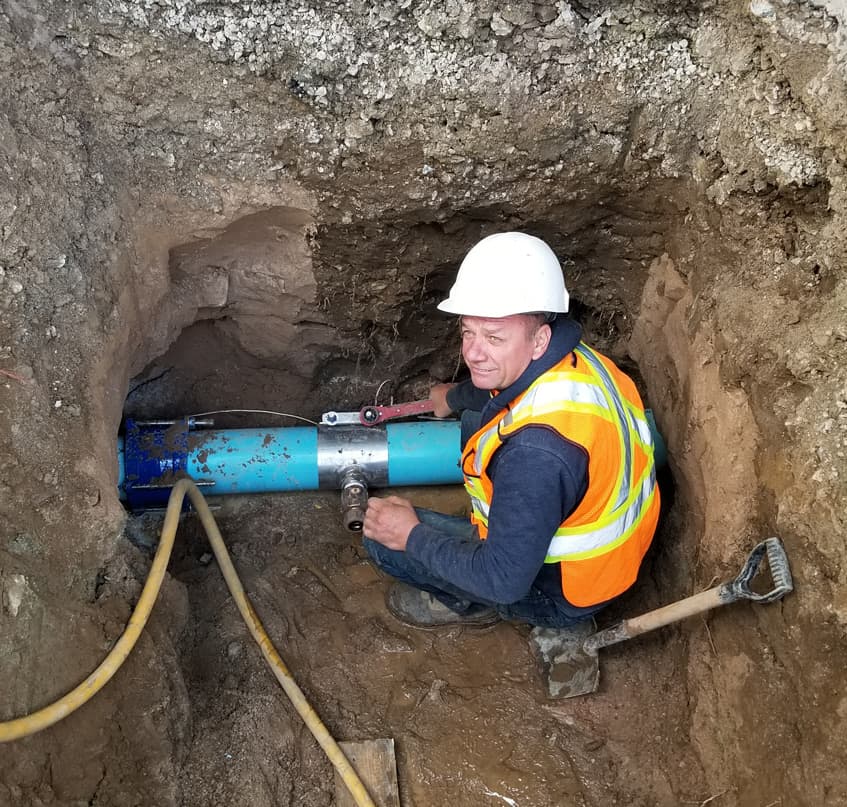
So why is it called a “sump pump”? A “sump” is another word for “pit” while a pump is a machine that moves water or sewage from one point to another. In essence, a sump pump is a pit that collects unwanted water and pumps it out of the home to a place where it can’t cause damage or lead to a flooded basement.
As you begin to consider the installation of a sump pump, a professional plumbing crew will have to come in and determine where to dig the pit for the pump. After the pump is set up in the hole, it can be connected via pipes to a floor or drain and/or your home’s weeping tile. When the pit fills up, a sensor will alarm the pump to evacuate the water in the pit. This is the whole sump pump system that keeps your home dry all year long.
Normal Noises from Sump Pump
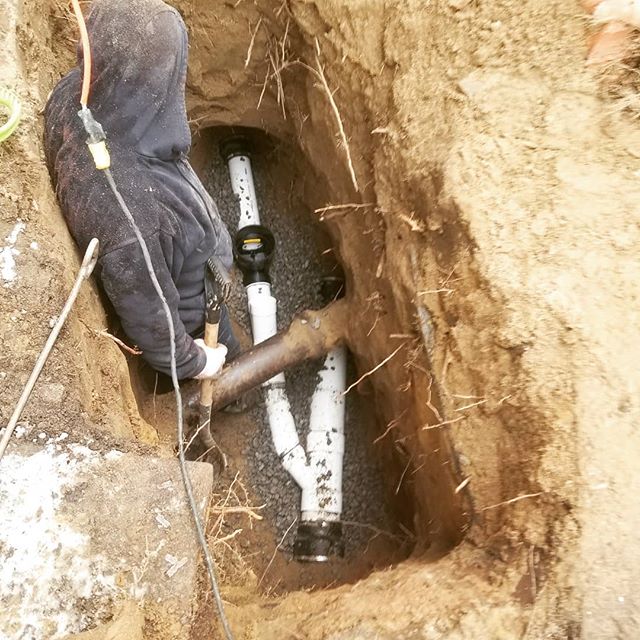
Unfortunately for homeowners, there is no such thing as a perfectly silent sump pump. You’ll always have a noisy sump pump to some extent. Simply because of the nature of the work and how they operate, sump pumps will always make some kind of noise while they are ejecting water from the pit. The sound it makes is the sound of compressed air being used to force water out of the pit and into the predetermined raining path that you’ve agreed upon with your certified sump pump installer.
But one thing is for certain, as it is with most appliances, your sump pump will make more noise as it ages. And while it is going to be impossible to eliminate all noise, getting a new pump is the only way you can attempt to tackle the noise with any reasonable effort. Your best bet is to ensure that your sump pump is in a more secluded part of your home, probably the basement. Making sure that the walls and door around it are well insulated can go a long way to achieving the near-silent sump pump operation that you desire.
Sump Pump Motor Noise
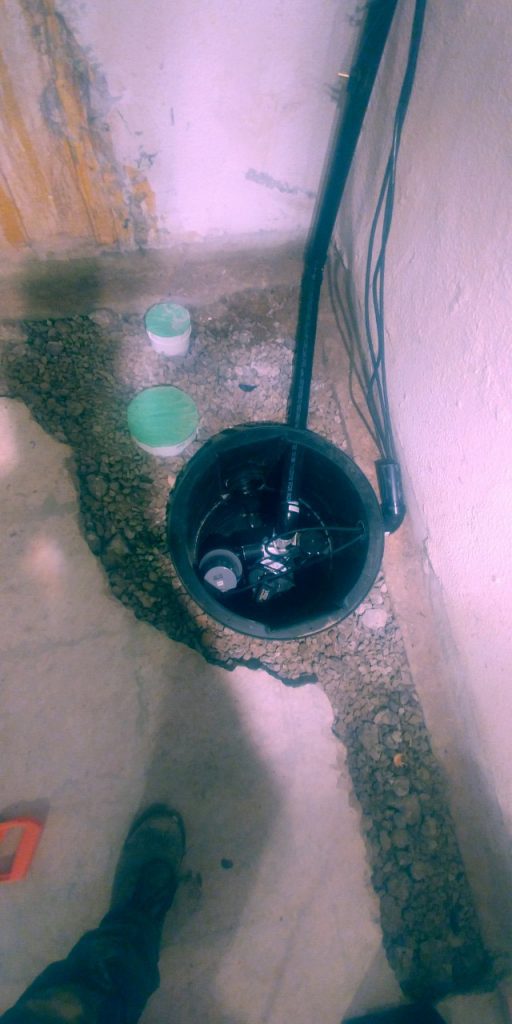
It’s pretty much impossible to muffle a motor, and that motor operating your sump pump is the reason why you’re hearing noises. But if the motor inside your sump pump seems to be excessively loud, then it’s like the motor is just very old and not requiring repairs.
The loudest pumps are usually made from PVC or plastic. That means the pump is likely older, and therefore louder than necessary. Also, keep in mind that there are 2 types of sump pumps including pedestal and submersible. A pedestal pump will see the pump placed about 60cm off of the ground and so that’s a lot noisier than a submersible pump. The submersible pump is placed underground and hidden beneath a cover or some type of cap. That’s how they keep that kind of pump so much quieter than pedestal sump pumps.
Clanging Sump Pump Noise
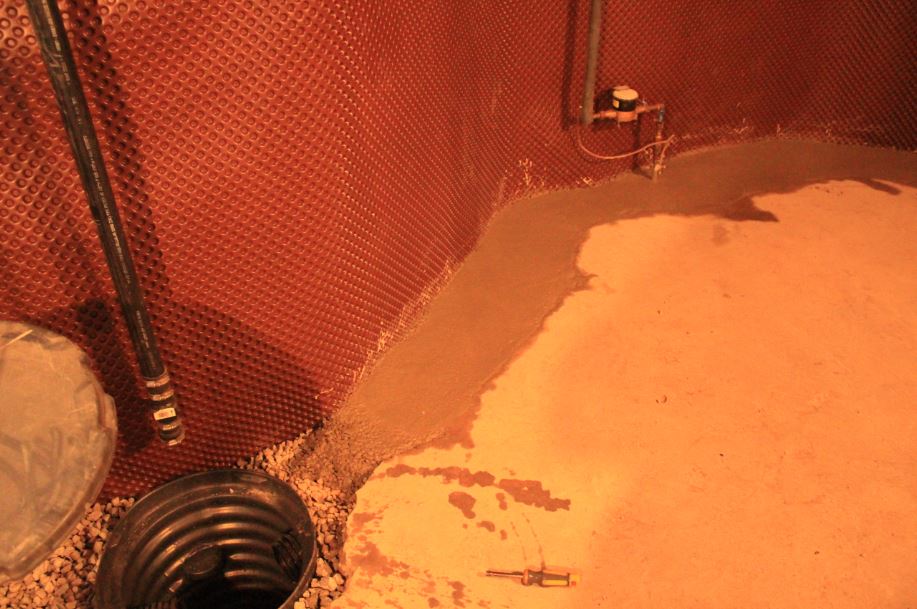
Here’s a sump pump noise to watch out for! Now, it’s normal to hear a metal-like clanging when the sump pump first starts working, but in a perfect world, that should cease after a few minutes of operation. It’s just the sound of water smashing into the pipe before it’s ejected from your home.
But if you hear a constant clanging that won’t stop, this could mean that your sump pump was not installed properly. This can be remedied fairly easily by insulating the pipe, which should keep the louder noises from escaping into most other areas of the home.
Gurgling Sump Pump Noise
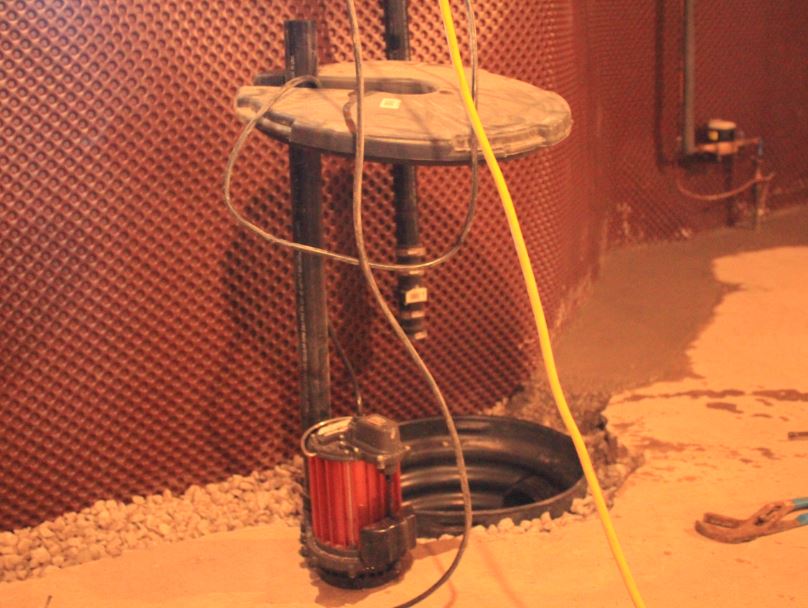
Are you wondering about other common sump pump noises? If you hear a gurgling sound, that’s pretty standard, because it’s the sound of a pump valve pushing out the water.
Now, in this case, there’s nothing wrong with your sump pump, but if you want to make a loud sump pump quieter, you can ask your professional pumper to install a spring-powered version of the valves that can quiet the process quite dramatically.
If you want to make sure your sump pump is installed properly, be sure to ask your plumber about ensuring that a relief hole is installed on the discharge line, as well as a swing check to stop excessive noise and harmful backflow.
How to Maintain a Sump Pump
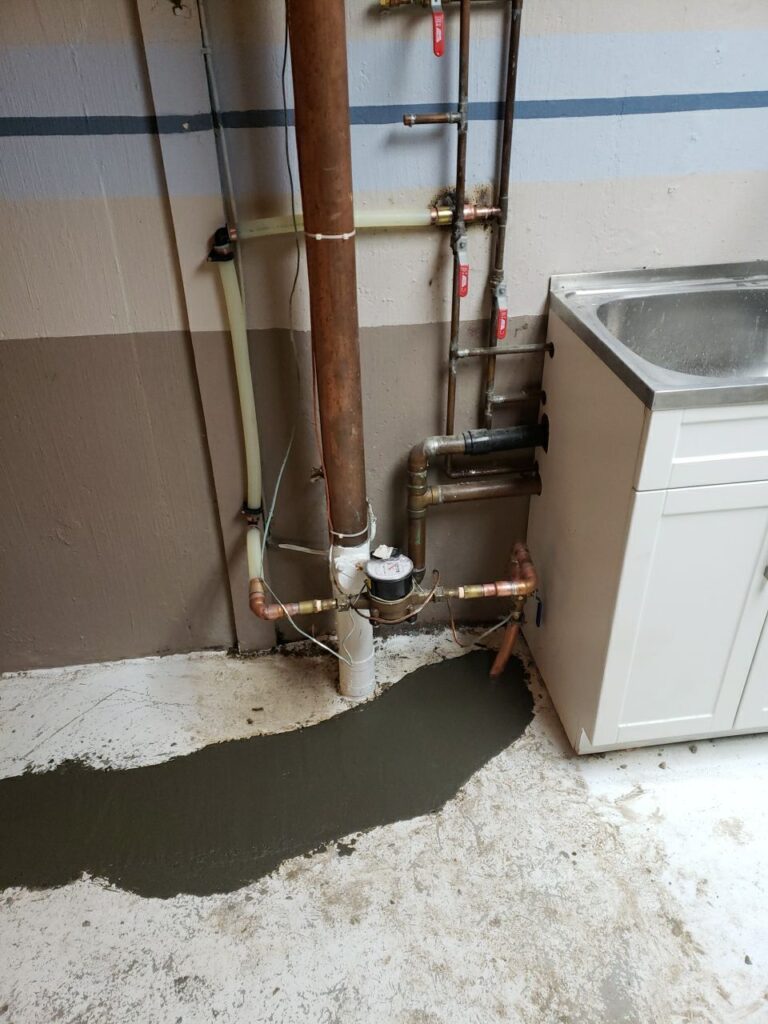
Are you wondering how much it costs to maintain a sump pump? Well, it varies from homeowner to homeowner.
If you live in a home that gets a lot of annual precipitation or is near a body of water that makes the groundwater excessively moist and prone to flooding, then you’ll want to get your pump examined and cleaned out every few months.
However, if your sump pump is only used a few times a year during heavy rainfalls and snow melt in the spring, then once a year is probably good enough for an inspection and cleaning by a trained professional.
The biggest issue to watch out for is if your sump pump is collecting water from the surface, then this could include debris such as dirt and possibly leaves. This is something that could prevent your sump pump from working correctly and you should avoid leaving it in this state at all costs. Doing so could lead to flooding and expensive damages to repair in the aftermath of a natural disaster.
Sump Pump Costs
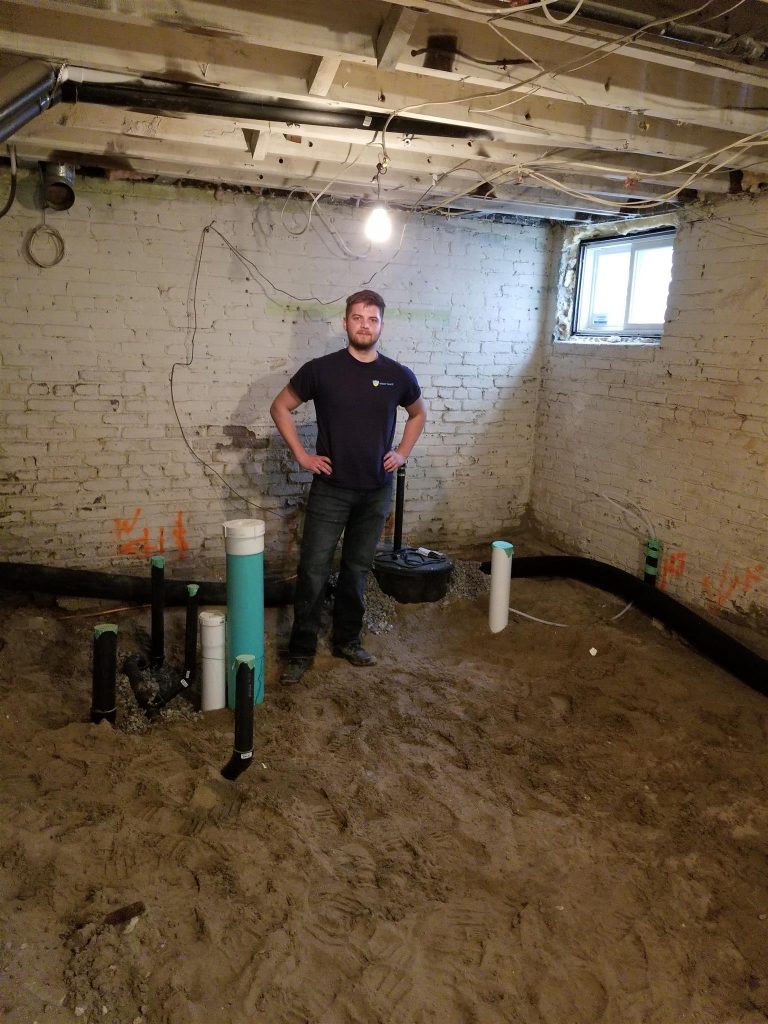
So how much does a sump pump cost to install? It depends on where you live. The installation of a sump pump in your home can run anywhere between $400 to $1,500.
If you have your plumber come to check on the sump pump regularly as you might with other household appliances and systems, that could be another additional cost annually, depending on how much cleaning needs to be done or if any parts need to be replaced.
Another cost to consider for homes that don’t have an existing sump pump is how you will renovate the space after the pump is installed. If your sump pump is installed in a utility room with a concrete floor, then you’ll have little to worry about. However, if your sump pump is going into an already-finished space, then you’ll have to consider how you’ll replace the flooring around the pump, if you’ll have to repair the local area or if you’ll require an all-new floor altogether.
Also, think about what your basement drain system is like. At this stage in the sump pump installation process, we have an opportunity to add multiple floors drains by a laundry room or basement kitchen area, for instance, that can direct an overflow of water directly into your sump pump system for prompt evacuation of the unwanted liquid.
Contact Us
From sump pumps to sewage ejector pumps, weeping tile, bathroom rough-ins, and kitchen renovations, the experienced professional plumbers at WaterGuard Plumbing have the know-how, skills and attitude to get the job done for you. Ask our hundreds of satisfied clients across the Greater Toronto Area and they’ll tell you about our commitment to trust, integrity, transparency and fair pricing on every job we tackle.
As a professional plumbing company, WaterGuard Plumbing technicians are fully trained, licensed, and certified to do the project. We take care of all the permits and rebate applications on our end to minimize the stress and work that’s put on the homeowner during any kind of plumbing job. You should never trust an amateur with any kind of plumbing job as you run the risk of not having your home insurance cover the cost of any unforeseen circumstances!
Are you ready to get started working with a first-class team of experienced plumbers? With same-day service and flexible scheduling to work around your hectic day, it’s never been easier to book a plumber for whatever repair or installation task you require. Contact us now to book your consultation. We’re here to help make everything right so you can get back to your busy life. Call now!
